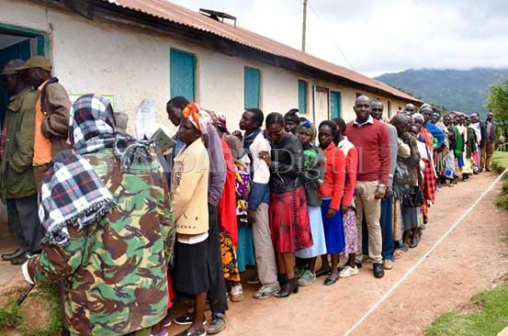×
The Standard e-Paper
Join Thousands Daily

The fresh presidential election exposed two sides of a country where on the one hand peaceful voting went on in some areas while chaos reigned in others, with police clashing with protesters.
In central Kenya and Rift Valley, low voter turnout in the morning gradually improved as the day wore on.